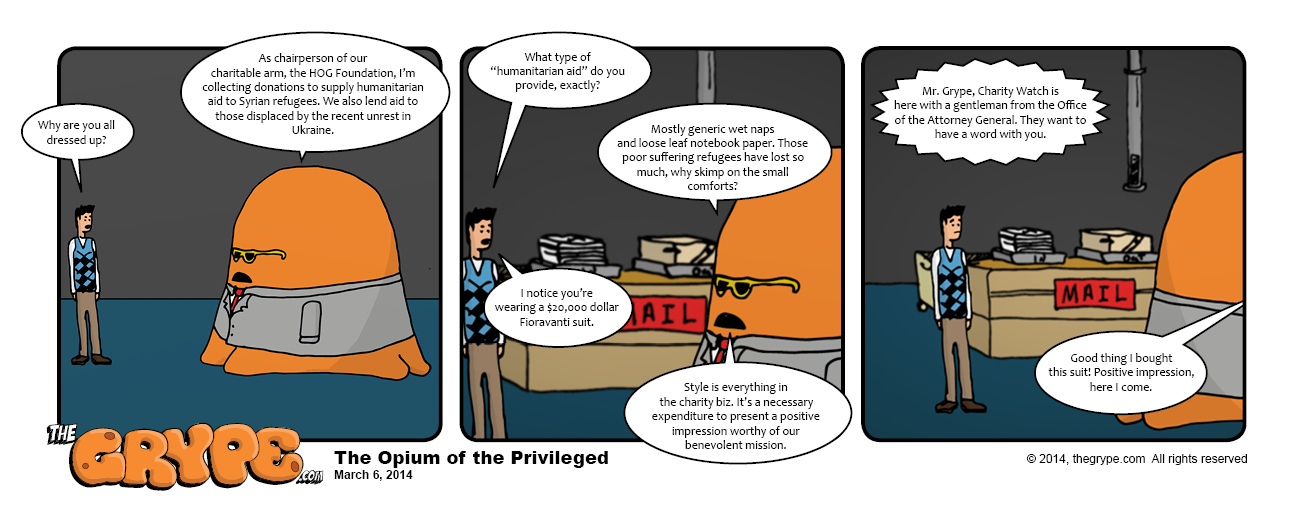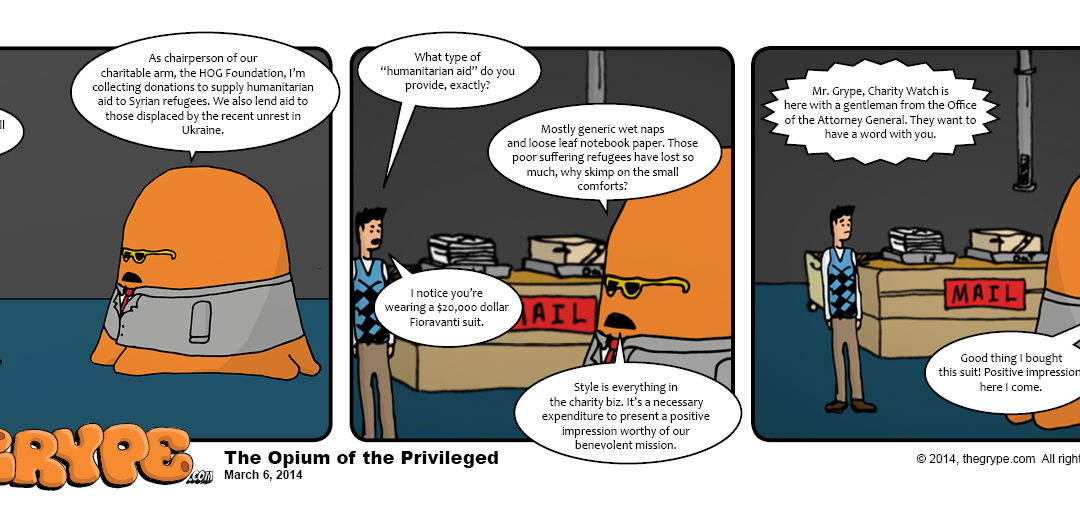 A swift glance at my TV reveals last year’s merry band of Minimum Wage reactionaries are back on the warpath. Luckily I’m too smart to buy into all the partisan shrieking and finger pointing from both sides. Trust me: if you get far enough either right OR left, you find yourself equally assailed by a bunch of hooting nut-cases.
A swift glance at my TV reveals last year’s merry band of Minimum Wage reactionaries are back on the warpath. Luckily I’m too smart to buy into all the partisan shrieking and finger pointing from both sides. Trust me: if you get far enough either right OR left, you find yourself equally assailed by a bunch of hooting nut-cases.
The argument is the same as always: business owners want to pay their employees less to keep business costs down, to remain profitable. So any outside attempt to compel them to shell out a higher wage is (they will loudly inform you) a direct “attack” on their businesses. It would be much better, they argue, for the Federal government and their pesky regulations (and the state governments, as well— basically anyone with a badge) to leave them alone so they can make money in whatever manner they see fit.
But unregulated (or “deregulated”) laissez-faire free market capitalism cannot EVER work out in the long run…. for the same reason the Superbowl can’t be played without rules and referees to enforce them. You can’t run a very important, highly lucrative competitive system based on surplus acquisition (free trade market) and fueled by personal motivation (greed) without necessary checks and balances to prevent abuse; otherwise the fastest-growing competitive front runners will meld into monopolies that unfairly suppress competition, until all capital is held by a very small, all-powerful construct. Government will then merge with Industry, until you wind up with a hereditary plutocracy. Which is dangerously close to happening in the modern United States.
Therefore let the federal government apply rational regulations, approved by the citizenry, to preserve the freedom of that citizenry and maintain the viability of competition within the system, preventing the damming of resources and opportunity beyond the reach of the greater part of the citizenry.
The establishment of a minimum wage seems a reasonable restriction to business, applied to raise the overall standard of living for the collective citizenry. Statistics show it has a negligible effect on overall employment in the long run— it slows industrial growth slightly, but just growth that would otherwise only come at the expense of a lower standard of living, i.e, smaller payrolls. The only thing it really does is reduce the profit ratio of existing businesses. That might curtail some expansion, sure— but, wait: want to expand every business in the country and put millions more to work? ABOLISH THE MINIMUM WAGE completely! See what happens!
More people would get hired to do more work for less pay, and more starving people would have to fall back on government aid to supplement their brand new $2.00/hr unregulated Walmart paycheck.
In such a move, everyone loses except business, which gets to expand its operations at the public expense. Some politicians would trumpet the new $2.00/hr jobs as “reducing unemployment,” I bet. Corporate profits would skyrocket. And Government aid programs would triple as our tax dollars made up the difference. What kind of idiot would support such a move?
You can’t decry outsourcing our labor overseas to cheap foreign factories while simultaneously complaining about a minimum wage for Americans in America. You can’t rage about dirty starving foreigners taking American jobs while simultaneously insisting that wages be kept so low that they create an expanding class of dirty, starving Americans. You can’t complain about immigrants illegally working for below-minimum wages, taking jobs from Americans, while slyly paying some illegal alien a buck an hour to remodel your house or clean up after your kids. Either decent Americans who are willing to take a job and work hard should be financially able to maintain a decent standard of living… or else they shouldn’t be. Which is it?
It’s all ridiculous, anyway, and a non-issue. The Minimum Wage is already law. It’s going to rise along with inflation anyway. The only question is when and by how much. Whether or not it should be raised until it constitutes a “living wage” is a different issue. Maybe not; some types of work deservedly don’t command as high a rate as others. The free market still has to function.
But raising the minimum wage means that businesses profit slightly less across the board, while the collective American standard of living gets better. I’m cool with that happening, since American corporate business profits are currently at record highs, whereas the current standard of living disparity between GDP per capita and median household income needs a boost after the downsizing of so many former jobs during the recent recession— losses which big business, even after widespread bailouts, has thus far NOT seen fit to make good.

